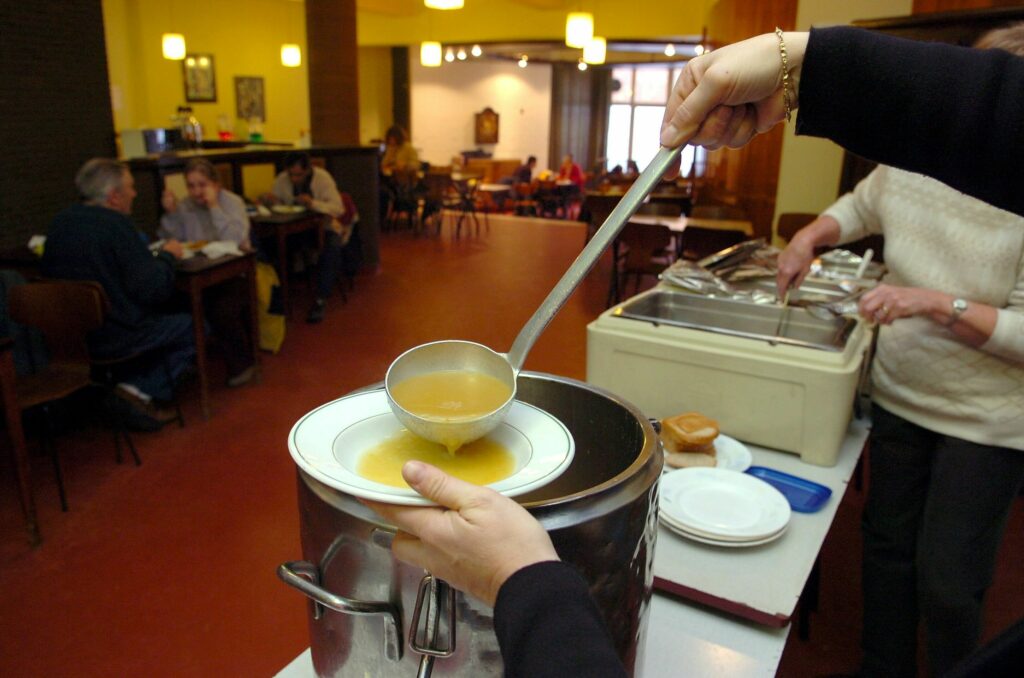A new comprehensive social centre run by Les Petits Riens was inaugurated Thursday morning in Brussels.
Les Petits Riens was founded in 1937 as a non-profit. It collects, sorts and sells various second-hand items, with all proceeds going to fund social initiatives against poverty and social exclusion. Yet its activities extend well beyond this, operating various shelters, health services and social centres to assist vulnerable people.
On Thursday, the organisation opened a new centre designed to serve individuals in severe poverty, accommodating up to 100 people daily in a "friendly, safe, and welcoming" environment.
Located at 328 Van Volxem Avenue in the Brussels municipality of Forest, the 1,200-square-metre building was acquired and renovated thanks to a substantial private donation and additional funding from the Joint Community Commission (Cocom).
"In recent years, the number of homeless people in Brussels has significantly increased, as our teams have observed on the ground. Requests for assistance are multiplying, and individuals’ situations are becoming increasingly complex, involving housing, health, finances, and substance use," stated the organisation.
In response to this "alarming" situation, Les Petits Riens has opened one of the largest day centres in the capital.
Accessible to everyone, the centre offers first-line social services to provide multidimensional support tailored to each individual’s needs.
A wide range of essential services is available, including social engagement, social services, showers, computer access, hot drinks, changing rooms, secure lockers, and individual rest areas. Additionally, the Petits Riens social centre is the only one in Brussels accessible to people with reduced mobility.
The building also centralises other first-line social services of Petits Riens. The ground floor is dedicated to day reception, while the upper floors house the association’s psycho-social support services.
"This centralisation creates synergies among services, offering a more coherent and effective response to people’s needs and addressing the fragmentation of social aid on the ground," concluded the non-profit organisation.

